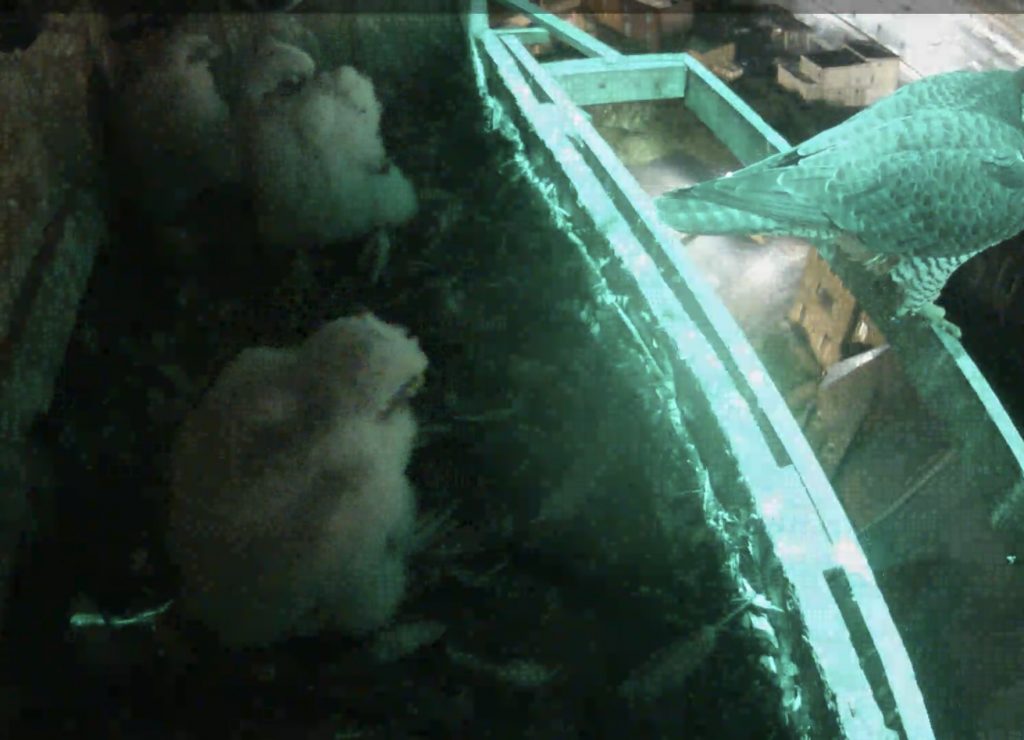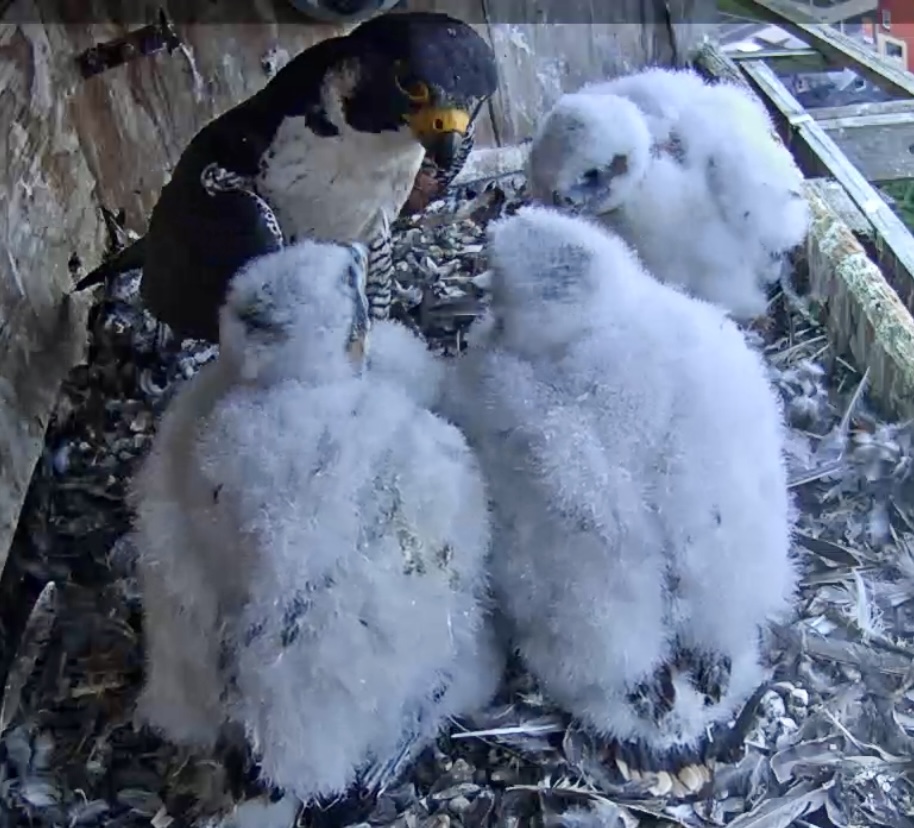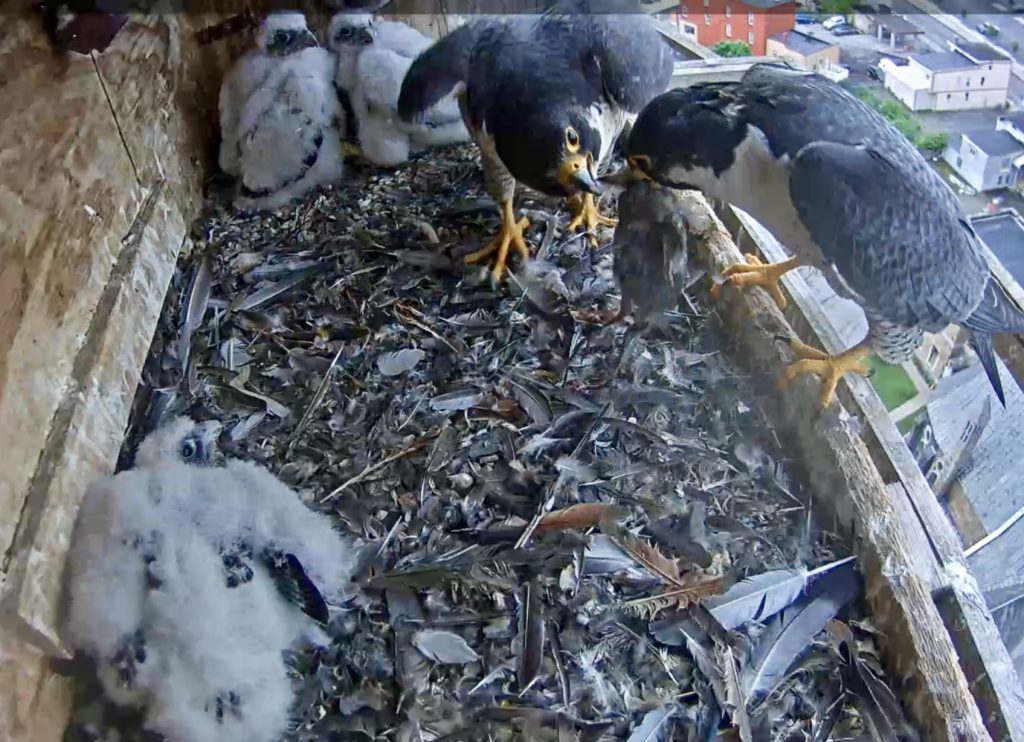Update for Thursday, May 23, 2024

Astrid became very upset today when she perceived workers up on the bank roof. She gave loud cackling calls for at least an hour. She hazed them; she got Ares involved, and she generally put on quite a show. During the breeding season, Peregrine Falcons exhibit highly territorial and aggressive behaviors; they haze intruders or other perceived threats near their nesting sites. These raptors are fiercely protective of their nests, particularly when they occupied by nestlings. Any encroachment by other birds, predators, or humans is met with swift and decisive action to safeguard their offspring.

Peregrine falcons use a combination of aerial maneuvers, vocalizations, and physical attacks to deter intruders. When a threat is detected, they will often launch into the air with rapid, powerful wingbeats, using their considerable speed and agility to confront the intruder. They may dive-bomb the threat in a series of aggressive swoops, coming very close or even making contact with their talons to scare it away. These hazing dives are both intimidating and effective, showcasing the falcon’s prowess as a top predator. In addition to physical hazing, peregrine falcons employ loud, piercing vocalizations to warn off intruders. Their sharp, repetitive cackle calls serve as an auditory deterrent, signaling to the intruder that they have entered a highly defended territory. These vocal displays also alert the mate and any fledglings of potential danger, ensuring that the entire family remains on high alert.
